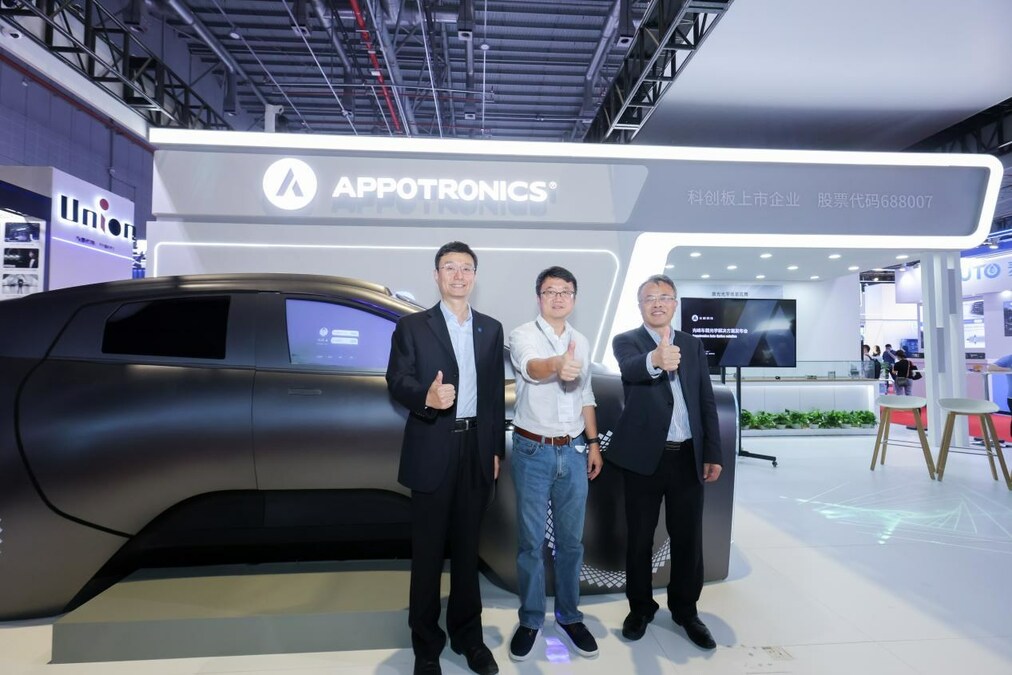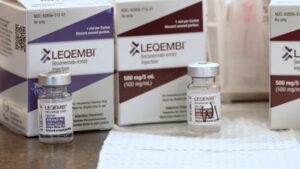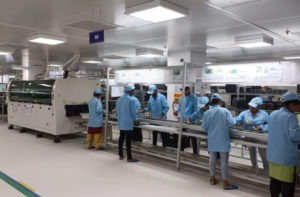Appotronics, a leading developer of laser display technology, is gearing up to expand its presence in the fast-growing intelligent electric vehicle (EV) market. The Shenzhen-based company, which counts BYD, BMW, and Huawei Technologies among its clients, plans to commence production at a new facility dedicated to automotive optics by the end of this year. Founder and CEO Li Yi anticipates that this move could contribute up to a third of the firm’s total revenue, with the automotive business projected to represent half of Appotronics’ total revenue in the next two to three years, driven by the increasing popularity of smart EVs.
Li expressed optimism about the growth prospects, citing improved production efficiency and rising demand from clients. Appotronics supplies laser headlights, fusion window display technology, and in-car infotainment screens to EV assemblers. Its technology enables smart EVs to display information on windows, such as interior temperature and proximity to a parked car, setting it apart in a niche market with no direct rivals.
Li believes that the company’s automotive-related business will outpace the overall Chinese EV market, fueled by consumer interest in digital cockpits. In the first half of 2023, Appotronics recorded a profit of 74.9 million yuan (US$10.5 million), up 63% year-on-year, despite a 15.5% decline in revenue to 1.07 billion yuan. In 2022, it reported revenue of 2.54 billion yuan (US$355 million), a 1.7% increase from 2021, but net profit dropped by 48% to 120 million yuan.
Intelligence in smart EVs is manifested through features like voice-activated controls, facial recognition, over-the-air software upgrades, phone-linked features, and panoramic digital cockpits supported by augmented reality and virtual reality technologies. In China, where sales of battery-powered cars represent about 60% of the global total, young motorists are opting for intelligent electric cars to support the government’s efforts to reduce pollution.
Founded in 2006, Appotronics unveiled its advanced laser phosphor display (ALPD) technology in 2007, which it claims to be the world’s smallest, brightest, and most efficient laser light source technology. Apart from automotive applications, ALPD is used in cinemas, consumer electronics, and home projection systems. The company is also exploring opportunities abroad, as the demand for intelligent EVs is growing globally. However, Li emphasized the need to carefully assess manufacturing efficiency when considering overseas expansion.
Chinese vendors dominate the global vehicle parts supply chain, contributing US$710 billion of the US$1.51 trillion global total in 2021. They also lead the EV supply chain, accounting for over three-quarters of the world’s production capacity for batteries, which constitute around 40% of a typical car’s price. Chinese EV makers delivered 8.9 million units in 2023, a 37% year-on-year increase, with battery-powered cars now representing about 40% of total car sales in China.
Cao Hua, a partner at Shanghai private-equity firm Unity Asset Management, noted that Chinese supply-chain firms in the automotive sector have a strong potential to go global due to their unique products and technologies. However, convincing clients of their global appeal will be crucial as the auto industry undergoes transformation.
(Source: SCMP | Gizmochina)









